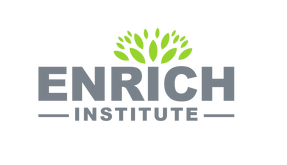|
By: Marie-Odile Emond ‘The last mile on the journey for the elimination of new HIV infections might actually be the most difficult. Despite the decline of external funding, Cambodia remains committed to and will achieve the elimination of new HIV infections by 2020.” This was the conclusion of a HIV health sector strategic planning consultation recently led by the National Center for AIDS, Dermatology and STI (NCHADS). As we mark World AIDS Day today, let us all reflect on what Cambodia has achieved. From having one of the most serious HIV epidemics in Asia in the mid-1990s, Cambodia’s large scale prevention and treatment program has dramatically reduced HIV prevalence to 0.7 per cent in 2013. Of the estimated 75,000 people living with HIV, most receive the life-saving treatment they need, allowing them to live healthy and productive lives.
Nevertheless, high rates of HIV infection among entertainment workers, men who have sex with men, transgender people and injecting drug users persist. While stigma and discrimination have declined, individuals still face barriers in accessing health services and are often excluded from education, work, social services and family life. Cambodia’s internationally recognised AIDS response reached a turning point in 2014. External financing for the response is now sharply declining and the Royal Government of Cambodia has been called upon to increase its share of financing of the AIDS response. The risk of a funding crisis has also called for doing more with less. This has triggered intensive efforts under the leadership of RGC, with support from civil society, the United Nations and other stakeholders, to develop more focused, efficient and effective approaches to delivering HIV prevention, treatment and care to key populations, as well as innovations and new opportunities to optimise synergies with other health, community and social protection services. Cambodia is bouncing back: with strategic and cost efficient programs, increased funding from the RGC and sustained support from development partners combined with the continued partnership with civil society and communities, Cambodia can achieve its ambitious goal – articulated in the Cambodia 3.0 framework – to eliminate new HIV infections by 2020. This year saw significant breakthroughs, confirming strategic multisectoral leadership in the national AIDS response. Recently, a new prakas was adopted to improve occupational safety and health and working conditions in the entertainment sector. This landmark regulation, the first of its kind in Asia, reinforces labour rights for entertainment workers, including protection from sexual harassment and access to health services. The first national Harm Reduction Strategy is being developed by the National Authority for Combating Drugs (NACD) and Ministry of Health. A Needle and Syringe policy was adopted, which allows injecting drug users to protect themselves from HIV and other infections. The National AIDS Authority (NAA) and NACD also shared HIV and drug use prevention messages during this year’s Water Festival. The Phnom Penh municipality, NACD and Ministry of Health introduced a new community-based treatment program to prevent drug use and offer treatment, rehabilitation and reintegration services to drug users in the capital. Cambodia is the first Mekong country to adopt such an innovative alternative to compulsory drug treatment centres. A new Urban ID Poor social security mechanism is being developed to expand access to health care and other services for poor and vulnerable people. The Ministry of Planning is looking at including people living with HIV and key affected populations – most of whom live in cities. To secure Cambodia’s long-term access to affordable generic drugs for HIV and other public health conditions such as malaria, tuberculosis, cancer and diabetes, the Ministry of Health has submitted for promulgation a draft law on compulsory licensing for public health. Around 3,000 students joined the HIV Campaign at the National High School Sports Tournament, led by the Ministry of Education, Youth and Sport. The ministry is also scaling up comprehensive sexuality education in schools and other places across the country. The draft second national action plan for violence against women specifically addresses the links between violence and HIV, and the critical issue of violence against lesbian, bisexual and transgender women. And a rainbow glow fell over Cambodia in May this year, as thousands of people joined Buddhist blessing ceremonies, film nights, HIV testing, prevention and human rights workshops during the largest ever Pride Week organised by the LGBT community. These are big steps forward. Sustaining the AIDS response with fewer resources is both a challenge and an opportunity. It builds on a strong partnership between the national program, civil society and HIV-affected communities along with continued support from the United Nations and other development partners. Indeed, HIV remains a key priority for the United Nations in Cambodia, led through its Joint UN Team on HIV/AIDS. At the National WAD Ceremony on November 27, the National AIDS Authority announced that the RGC would increase its share of financing for the AIDS response. The RGC also made a plea for everyone to join forces for an AIDS free generation with no new HIV infections, no discrimination and no AIDS-related deaths. On this World AIDS Day, we pay tribute to those affected by HIV and remember all the lives lost to AIDS-related illnesses, including an estimated 2,700 Cambodians in 2013. Cambodia can be one of the first low income countries in the world to eliminate new HIV infections by 2020. Let us make it happen and make 2014 the turning point for the last mile on the journey to ending the AIDS epidemic. Marie-Odile Emond is the country director for UNAIDS. Note. This article originally appeared in the Phnom Penh Post on December 1, 2014.
0 Comments
Leave a Reply. |
Categories
All
Archives
October 2017
Disclaimer: All views expressed here belong to their respective author and do not represent the views of Enrich Institute
|

 RSS Feed
RSS Feed
